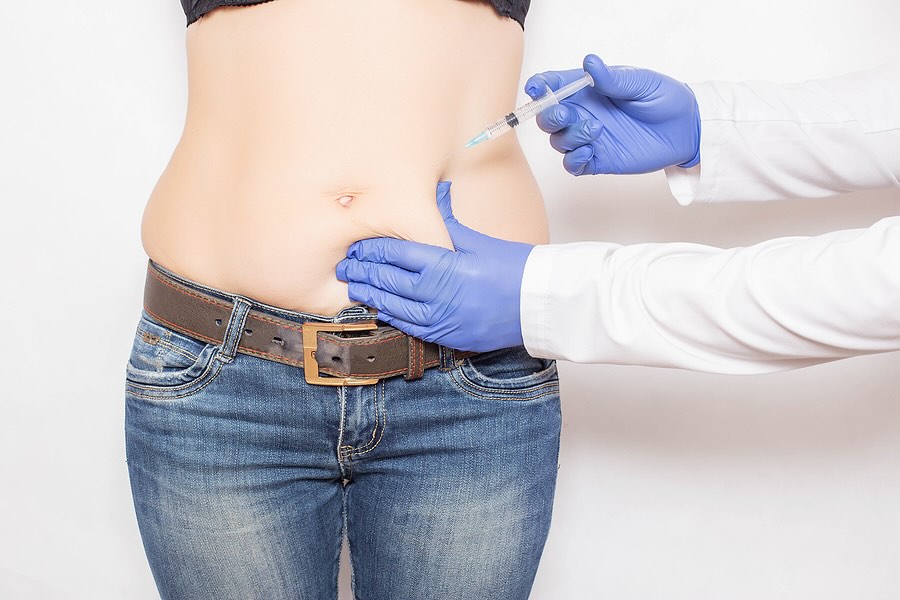Updated: Apr. 4th, 2024
Shelly burst into tears the moment I asked how her weight loss efforts had been going. She was frustrated and angry, because she had tried everything– but nothing had worked.
Shelly told me that her friends, family, and even her family doctor basically seemed to think she wasn’t trying hard enough. But Shelly knew– and I knew– that she was trying.
Shelly told me she was exercising two or three times a day, counting calories excessively, eating endless salads, and avoiding sugar like it was the plague (not a bad idea, since it kind of IS).
Shelly calmed down when I told her I understood that she was doing everything in her power to improve her health, and I understood that her body was resisting all of those efforts. I also understood how much that made her want to rip her hair out!
“You believe me?” she asked. When I said “Absolutely,” the look of pure relief on her face reminded me why I do what I do.
I’ve seen that look on so many of the women I have seen for weight loss issues. They’re always so grateful that I listen carefully, don’t dismiss their concerns, and have a new perspective to offer.
Helping women break free from the guilt and shame that results from the crazy expectations our society places on them is one of the reasons I began my practice. And teaching them to understand how their body truly works, and the amazing power they have over their own lives, is one of my greatest joys.
I know how it feels to have people question your commitment even when you know how hard you’re trying. I know how it feels to struggle to lose weight when everyone around you seems to shed pounds effortlessly. And I know how amazing it feels to finally discover what works and take control of your own health once and for all.
Weight loss resistance is a term coined by my good friend JJ Virgin to name the struggle of what’s happening in your body if you aren’t losing weight even when following strict guidelines. She knows as well as I do that much of the problem stems from imbalanced hormones.
I’ve talked extensively in my articles about cortisol, insulin, thyroid hormones and sex hormones, because having the right balance for all of them is critical to good health. But there’s another hormone that seems to have a big impact on the way our bodies hold on to fat: growth hormone.
Let’s explore what growth hormone is, how it impacts weight loss resistance, signs that you may have low levels of growth hormone, and what you can do about it, naturally, to experience success instead of endless frustration.
What is growth hormone?
Human growth hormone (HGH), or growth hormone, is responsible for a lot more than its name suggests. That’s why it’s important to maintain adequate levels throughout your life, even after you’ve stopped growing. As a child, a growth hormone deficiency will impact typical growth and development. As an adult, your growth hormone has many important functions, including supporting brain functioning, muscle development, helping to regulate blood glucose levels and metabolism.
Growth hormone is produced by your pituitary gland, which also produces a range of other hormones. Production is highest during the teen years, when your body is growing and your brain developing rapidly. As you age, growth hormone production slows. That’s normal and natural – unless it slows too much!
Growth hormone has a lot of important responsibilities, including the primary impact it has on growth, body composition, metabolism and cell repair. HGH helps your body recover from injury or disease, and increases muscle strength and physical performance.
As you can see, decreased levels of growth hormone can have a detrimental effect on your body, including putting you at higher risk for disease, decreased quality of life, and holding on to fat. Adequate levels are essential, then, when trying to lose weight.
Research has consistently demonstrated that people with obesity have less HGH than those who maintain a healthy weight.
What is weight loss resistance?
Anyone who has tried to lose weight has hit a plateau, where the loss stalls out. But weight loss resistance is much more than that. Most people find that when weight loss stalls, they can shift their protocol slightly and keep moving forward. Weight loss resistance is when you stay stuck for an extended period of time, the numbers on the scale refusing to budge.
The outdated “calories-in calories-out” model is a source of great frustration for women dealing with weight loss resistance. They’re accused of eating in secret, cheating on their diet, or just not trying hard enough. The result is that many stop eating enough for their body to properly function, which simply makes matters worse!
There’s so much more to weight loss than calories. The quality of the calories is important. The toxic load on the body has an impact. Medications, food sensitivities, genetics – the list of factors impacting weight goes on and on. And one of the most important to consider is the balance of all the hormones in your body.
Hormones, after all, are chemical messengers. If they’re not getting their message where it belongs – or they’re sending the wrong message entirely – your body gets confused.
None of that is to say calories don’t matter at all. Of course they do. So does the quality of the food you eat. But hormonal balance might be the factor that tips the scales in favor of losing weight.
Knowing that weight loss resistance exists helps many women – myself included – get past the frustration and upset of weight that won’t drop, no matter what they do. I remember a time in my life when I was desperately trying to get to a healthier weight. I ran obsessively, counted every calorie, and often went hungry hoping it would help. When I discovered the importance of hormonal balance, that’s when everything finally shifted for me.
How Does Growth Hormone Impact Weight Loss Resistance?
In the early 1990s, a study published by the New England Journal of Medicine concluded that synthetic HGH injections prompted a 14 percent loss of body fat and 8.8 percent gain in muscle mass without changing diet or exercise habits. This prompted a flurry of activity and excitement around the use of synthetic HGH as a weight loss tool.
Unfortunately, later studies did not show the same results, and there are considerable side effects from the misuse of HGH. Like any “quick fix,” the hype of synthetic HGH was overblown and unrealistic. Weight loss is hard work!
Still, a significant body of research demonstrates that there is a connection between obesity and growth hormone deficiency. It’s a complicated relationship that still isn’t entirely understood. For instance, it’s hard to tell which came first – the obesity or the deficiency.
So while the use of HGH in those who do not have a deficiency isn’t advised (or approved by the FDA) for weight loss purposes, your levels are worth exploring. If you are, in fact, deficient, balancing these levels out may be just what your body needs to spring it back into action.
And, of course, it’s worth mentioning that I don’t think synthetic hormone injections are the way to go. There are many natural ways you can balance out your hormone levels without adding unnecessary chemicals to the mix.
What causes low GH levels?
So how do growth hormone levels get low in the first place? Like any hormonal imbalance, it’s about the way hormones interact with each other.
It often begins with insulin, which tells your body to store energy as fat so you have it when you need it. This was great when our ancestors had the very real risk of facing long periods of famine. But for most of us in current times, food is everywhere.
Unfortunately, a lot of it isn’t very healthy, so it can easily throw your insulin levels out of balance. When you eat, insulin takes excess glucose from your blood and pushes it either into cells for energy or into muscles and liver for storage.
The refined carbs that are so popular in our Western diet have the biggest impact on insulin since they so quickly break down into sugar. That means higher release of insulin, and greater potential for imbalance.
When you have too much insulin in your blood, insulin resistance can develop. This means your body can’t respond properly to the insulin, leaving levels of glucose too high, which in turn causes your pancreas to create even more insulin.
This, of course, wreaks havoc on your other hormones. Your body perceives the imbalance as stress, increasing cortisol levels. Consistently high cortisol begins a chain reaction of depleted hormones, including growth hormone.
Signs that your GH levels are too low
A physical exam is usually the first step in diagnosing a growth hormone deficiency. When the signs point to the possibility that this is an issue, comprehensive lab work can confirm the problem.
Physical signs of low growth hormone levels can include changes to skin, loss of muscle tone, difficulty in building muscle, sleep difficulties, obesity, and increased fat in the abdominal region.
Natural ways to balance GH levels
If your growth hormone levels are low, pharmaceuticals aren’t your only option. In fact, there are many great ways to balance out growth hormone levels (along with other hormones) naturally. Here are my top suggestions:
Use supplements to manage nutrient deficiencies
A compounding pharmacy may have homeopathic drops or sprays, like secretroptropin, that naturally boost growth hormone levels. Some amino acids, such as tyrosine, glutamine, arginine, and glycine, can also help increase production of growth hormone when taken after exercise or before bed. GABA and/or melatonin supplements may also be helpful. It’s important, when considering supplementation, to discuss with your health care practitioner before starting to be sure you find the combination that’s right for your body.
Take small steps towards better eating habits
What you eat is important, and so is when you eat. Reducing consumption of refined carbohydrates and added sugar is probably the most important thing you can do. Replace them with healthy fats and protein, as well as plenty of vegetables and some fruit, for a well balanced diet that can help your hormones thrive. Reduce (eliminating is even better) eating before bed to avoid an insulin spike that can block growth hormone production as you sleep. Fasting has been shown to have a positive impact on HGH levels in several studies. While extended fasting isn’t realistic, intermittent fasting – especially the one day on, one day off method – can help keep levels of growth hormone optimal by helping you lose body fat and keeping insulin levels lower. It’s likely that even shorter fasting periods of 12-16 hours can produce similar results, though more research is necessary on this.
Focus on quality sleep
Your body needs the proper amount of sleep to function at its best. Growth hormone is released in pulses based on your body’s circadian rhythm. Sleep deprivation has a big impact on the proper secretion of growth hormone. Peak secretion of growth hormone happens at the onset of deep sleep, with smaller pulses throughout the night. Poor sleep can inhibit HGH production, leading to imbalances. To promote quality sleep, set a bedtime schedule and stick to it every day. Avoid electronics before bedtime; turn them off at least an hour before you want to get to sleep. Avoid caffeine late in the day, don’t consume alcohol before bed, and be sure your bedroom is comfortable and calming.
Increase exercise – and don’t forget strength training
Exercise produces a short term spike in growth hormone levels. If you exercise regularly, you’ll be supporting hormone function which will help reduce body fat, helping keep those growth hormone levels where they belong. While high intensity workouts boost HGH levels most, any physical activity is better than being a couch potato. I recommend interval training, which alternates low and high intensity activity. Just twenty to thirty minutes on a regular basis can be effective. Strength training is also important to keep hormone levels balanced and muscles functioning properly. Be sure you’re using heavy enough weights to really give your muscles a workout.
Laugh!
You probably already know how good laughter can make you feel, but do you know why? It’s all about the release of hormones. Some research has even shown that just the anticipation of laughter can boost HGH significantly. Laughter is an amazing stress release, as well. So sit down to watch a funny movie, take a laughter yoga class (yes, it’s a real thing), or just spend time with people who make you laugh.
Shelly took my suggestions, and when I next saw her, there were no tears in sight! In fact, her smile lit up her face. She’d begun to see results, and best of all, she felt validated and heard. The people in her life who’d said she just hadn’t been trying hard enough had noticed, asked what was different, and apologized for not understanding the effort she’d been putting in when she explained what the actual problem was.
Weight loss is a long and arduous journey sometimes, but you should never give up hope. You have far more power over your own health than most people know. Understanding the expansive range of hormones that have an impact on weight and metabolism can help shift your mentality from “What am I doing wrong?” to “How can I best support my hormones?” Once you make that mindset shift, you’re well on your way to a healthier weight!
Resources:
https://www.yourhormones.info/hormones/growth-hormone/
https://maxliving.com/healthy-articles/weight-loss-resistance/
https://goop.com/wellness/health/why-youre-not-losing-weight/
https://www.chatelaine.com/health/wellness/igns-youre-low-in-growth-hormone-and-five-remedies/
https://www.healthline.com/nutrition/11-ways-to-increase-hgh#2.-Fast-intermittently








